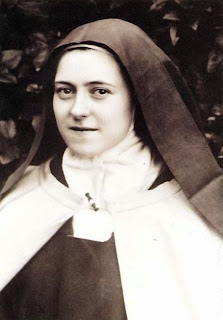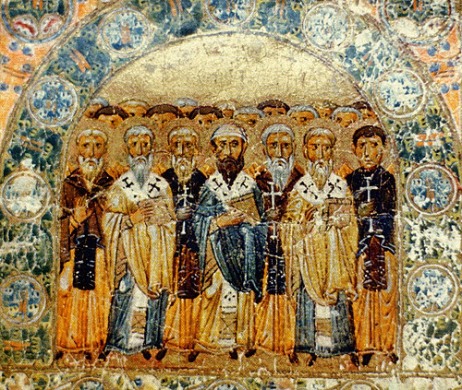Wednesday, 1 October 2014
Saint Thérèse of the Child Jesus (1873-1897), Carmelite, Doctor of the Church

Santa_Teresa_di_Gesu_Bambino-di_Lisieux-BA
Wednesday, 01 October 2014
Saint Thérèse of the Child Jesus (1873-1897), Carmelite, Doctor of the Church
Poem « Jesus, my beloved, remember ! » ; v. 1, 6-8
Poem « Jesus, my beloved, remember ! » ; v. 1, 6-8
Remember the Father's glory,
Remember the divine splendor
You left in exiling yourself on earth
To redeem all the poor sinners.
O Jesus! Humbling yourself to the Virgin Mary,
You veiled your infinite greatness and glory.
Ah! Your mother's breast
Was your second heaven,
Remember…
Remember that on other shores
The golden stars and silver moon
On which I gaze in the cloudless sky
Delighted and charmed your Infant eyes.
With your little hand that caressed Mary
You upheld the world and gave it life,
And you thought of me,
Jesus, my little King,
Remember.
Remember that you worked in solitude
With your divine hands.
To live forgotten was your sweetest task.
You rejected human learning.
O You who with just one word could charm the world,
You took delight in hiding your profound wisdom.
You seemed unlearned,
O All-powerful Lord!
Remember.
Remember that you wandered as a Stranger on earth.
You, the Eternal Word,
You had nothing, no, not even a stone,
Not a shelter, like the birds of heaven.
O Jesus! come within me, come rest your Head,
Come, my soul is truly ready to receive you.
My Beloved Savior,
Rest in my heart.
It is Yours.
Remember the divine splendor
You left in exiling yourself on earth
To redeem all the poor sinners.
O Jesus! Humbling yourself to the Virgin Mary,
You veiled your infinite greatness and glory.
Ah! Your mother's breast
Was your second heaven,
Remember…
Remember that on other shores
The golden stars and silver moon
On which I gaze in the cloudless sky
Delighted and charmed your Infant eyes.
With your little hand that caressed Mary
You upheld the world and gave it life,
And you thought of me,
Jesus, my little King,
Remember.
Remember that you worked in solitude
With your divine hands.
To live forgotten was your sweetest task.
You rejected human learning.
O You who with just one word could charm the world,
You took delight in hiding your profound wisdom.
You seemed unlearned,
O All-powerful Lord!
Remember.
Remember that you wandered as a Stranger on earth.
You, the Eternal Word,
You had nothing, no, not even a stone,
Not a shelter, like the birds of heaven.
O Jesus! come within me, come rest your Head,
Come, my soul is truly ready to receive you.
My Beloved Savior,
Rest in my heart.
It is Yours.





